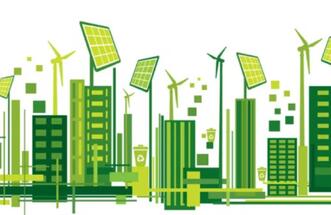In an era marked by heightened environmental consciousness and regulatory scrutiny, the real estate sector faces a pivotal moment in which stakeholders must shift focus towards measurable and quantifiable ESG performance.
Moving forward, Colliers’ consultants point out that buildings that are not sustainable and fail to meet the new ESG criteria will have minimal chances of attracting major tenants, securing bank loans, or garnering interest from prominent investors.
“The real estate sector finds itself at a critical juncture as it navigates the imperatives of ESG principles. With 2023 marked as the hottest year on record, the call for corporate and government action on climate change has reached unprecedented levels, propelling ESG activities to the forefront of all stakeholders' agendas. One of the primary catalysts driving this shift is the evolving regulatory landscape. From 1 January 2024, the EU's Corporate Sustainability Reporting Directive (CSRD) requires large public-interest organizations with more than 500 employees to report according to strict sustainability rules. These regulations encompass a broad spectrum of ESG factors, ranging from greenhouse gas emissions to human rights and biodiversity. ESG due diligence is becoming standard practice in investment decisions and property selection, while tenants are increasingly taking ESG considerations into account when choosing their future locations”, explains Tamara Dogariu, Senior Sustainability Consultant | ESG Strategic Advisory, the context in which investors, banks, and tenants are exerting increasing pressure on the real estate market to align with ESG principles.
“Amidst mounting pressures, the focus is shifting to measurable and quantifiable ESG performance. Stakeholders must prioritize investments in digitization and automation for greenhouse gas emissions measurement, alongside implementing energy consumption reduction strategies. As we approach 2030, the imperative to reduce emissions by 55% to comply with the EU's Fit for 55 regulations and the Paris Agreement's 1.5°C warming limit intensifies, underscoring the imperative for decarbonizing the property sector. With 80% of today's buildings expected to persist until 2050, retrofitting and repurposing existing structures for energy efficiency and sustainability are pivotal in tackling the climate emergency", highlights Roxana Isopescu, Senior Sustainability Consultant | ESG Strategic Advisory.
Green certifications remain an indispensable benchmark within the evolving ESG regulatory landscape, signaling a commitment to sustainable practices in the built environment. Investment in green certifications reflects a proactive stance towards meeting stringent ESG regulations, bolstering credibility and attractiveness to stakeholders.
Romania experienced another successful year in 2023 in terms of LEED, BREEAM, WELL and Access4you certifications. The trend can be attributed to industrial, logistic center, retail and office portfolios seeking certification.
Compared to previous years, particularly the pre-pandemic period when most green certificates were obtained by office owners, 2022 and 2023 had a more balanced and diverse distribution.
Approximately 40% of the green, health and wellbeing certifications achieved last year were related to office projects, which continue to account for the largest share of the total. At the same time, around 33% of applications were for industrial projects, while over 20% were for the retail sector.
Colliers' ESG Strategic Advisory team, comprised of professionals accredited in LEED, BREEAM, WELL, EDGE, and Access4You, has developed a portfolio of services dedicated to environmental, social, and governance (ESG) commitments.
This includes consultancy on green building certifications, carbon footprint calculations, Net Zero Carbon decarbonization projects, ESG strategy definition in the built environment, assessments, and guidance on applying the EU Taxonomy and energy audits.
Over its 13 years of activity in this sector, Colliers' ESG strategic consultancy team has provided consultancy for more than 240 projects in Romania, covering a total area exceeding 6.7 million square meters.



